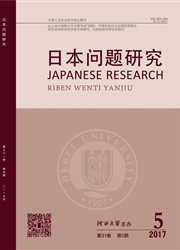

 中文摘要:
中文摘要:
模因论是基于新达尔文进化论观点解释文化进化规律的新理论,为解释语言发展规律提供了新视角。从模因论点的角度探究汉语中日语借词的产生途径以及发展现状,可以发现:日语借词中传播能力强的模因在汉语中得以保留,不符合汉民族文化心理和汉语发展规律的日语借词模因,则由于复制和传播较少而在模因竞争中被淘汰。文章从模因论入手,分析了汉语中日语借词的模因形式及成因,并从强弱模因论的角度对日语借词的流行和消亡进行了探讨。
 英文摘要:
英文摘要:
As a new theory to explain cultural evolution based on Darwin's evolution theory, memetics provides a different perspective to explain language development rules. When studying the causes of existence as well as current development of loanwords in Chinese borrowed from Japanese, it can be found that memes with high transmitting ability in loanwords have been retained in Chinese. Meanwhile those memes failing to conform to Chinese cultural mentality as well as language habits tend to be eliminated due to their limited reduplication and transmission. Starting with memetics, this paper analyzes types and causes of loanwords memes in Chinese, then followed by further investigation on the popularity and disappearance of loanwords on the basis of the theory of strong and weak memes.
 同期刊论文项目
同期刊论文项目
 同项目期刊论文
同项目期刊论文
 期刊信息
期刊信息
